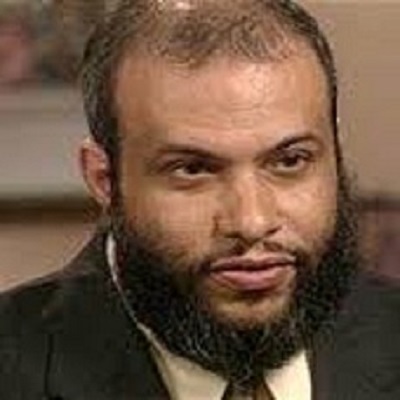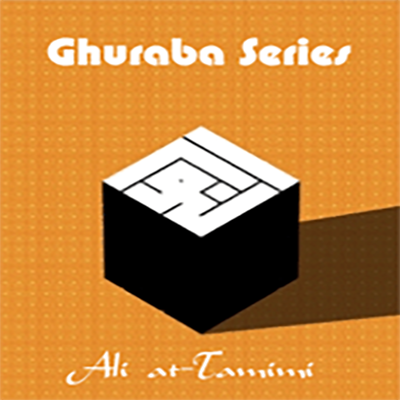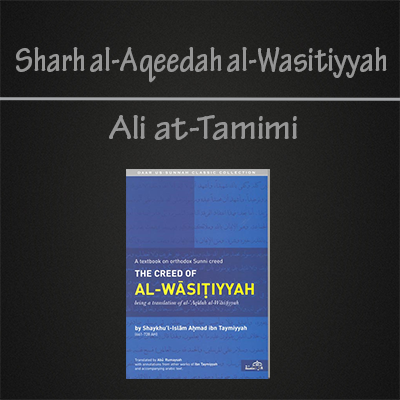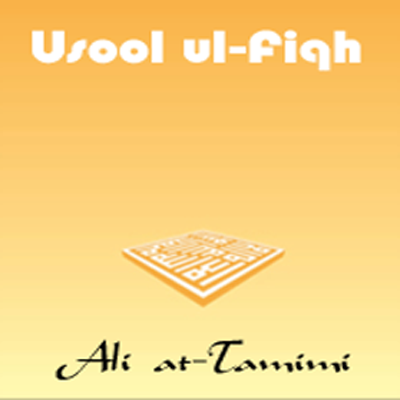Latest Lectures
Shaykh / Dr. Ali at-Timimi is one of a small group of highly educated, second generation immigrant Islamic activists who were born and raised in the United States. Highly knowledgeable in Islaam, Shaykh at-Timimi completed a doctorate degree in Cancer Research from George Mason University and is a person who might be more comfortable among stacks of books than throngs of people. Quite and amiable, he is generous with his knowledge, having lectured throughout the area and around the world to mostly English speaking audiences. His CDs, tapes, and books are sold and freely distributed over the internet to millions of people.
Shaykh at-Timimi has been fighting spurious government charges against him for almost two years. In an 11 count indictment, Prosecutors portray At-Timimi, 40, as the person who induced or motivated young men from the local area to join the Taliban. Such motivation constitutes ‘material support’ under the current ‘anti-terror’ laws. Dr. Al-Timimi was not indicted as a conspirator. However, he is facing serious charges that carry life sentence.
Childhood life
Shaykh at-Timimi was born in 1963 in Washington DC. He grew up in Washington D.C at a time when they were not many Muslims in the Washington DC area. The only Masjid in the entire metropolitan area and surrounding states was the Islamic Center on Massachusetts Avenue. The Islamic Center in DC was not full during Friday prayer and not even on 'Eid prayers. Muslims used to drive from Pennsylvania and from far states, just to come for the 'Eid prayer.
Ali’s parents were working in the Iraqi embassy and the family lived in Washington DC in a predominantly Irish-Catholic neighbourhood. Both of his parents were highly educated and education was crucial to them, so they sent him to a private Jewish Liberal school emphasizing strong academics. Ali grew up as a ‘typical American kid’ and his Islamic education was minimal. He never met an Arab Muslim peer during his childhood. When he was in middle school at the age of 12 or 13 a female classmate told him that she had to do a presentation about Islaam and she asked him if it was true that Muslims face Makkah when they pray. Ali, not knowing the answer and afraid of being embarrassed, made up an answer. “I didn’t want to feel embarrassed in front of her by not knowing the answer. I thought about it for a few seconds and then told her ‘No, that was in the old days, they don’t do that anymore!’,” recounted Doctor At-Timimi.
Like many Muslims kids who did not get the chance to get proper Islamic education, all he knew about Islaam was that Muslims do not worship Jesus (Peace be upon him), rather they consider him a Prophet. “Muhammad (Sallallaahu ‘alayhi wa Sallam) is our Prophet. Allaah is the name for God in Arabic and that Christians have the Bible and Muslims’ book is the Qur’aan. Muslims do not eat pork, and do not drink alcohol. That’s what I knew [about Islaam],” Doctor At-Timimi said.
The first spark that led Doctor At-Timimi’s lifelong love to learning was a question posed by a non-Muslim summer camp counsellor. She asked Ali about the Muslims’ belief in the Day of Judgment. Ali went home and picked up the Qur’aan translation from his father’s library and looked in the index and started reading versus about the Day of Judgment. “I thought; ‘Oh boy, this is very scary,” remembered At-Timimi.
Teenagers
In 1978, when Ali was about 15 years old, his parents moved to Saudi Arabia. The Kingdom was not the modern state it is today. Since Ali did not speak Arabic, he attended a private school that was divided into two sections, Arabic and English. The students in the English Section were Muslims born in America or Europe whose parents were working in the Kingdom. Besides the secular education, students would memorize parts from the Qur'aan, learn how to pray, how to fast and learn other Islamic teachings. The teachers were usually from Pakistan or India. Ali learned how to properly perform his prayer, memorized some of the Qur'aan and absorbed a lot of basic Islamic information. In Ali’s second year in the School in Riyadh, the school hired a man by the name of Bilal Philips to teach Islamic Studies in English. This was another turning point in Ali’s life.
The young Canadian Bilal Philips was a recent graduate of the Islamic University in Madinah. Philips — who would later become one of the most well known Islamic lecturers in the English speaking world — taught his young students directly from his own university class notes. Philips stressed the importance of following the Sunnah and not blindly following a personality or culture. He taught them the importance of supporting any Islamic arguments by evidences from Qur'aan or Hadeeth. In a short period of time, the amount of knowledge the students amassed was massive. The Canadian teacher shared young at-Timimi’s western culture, and now passed on his Islamic knowledge and zeal for learning to Ali.
College life in the US
At the age of 17, Ali came back alone to the United States to start college. He went to George Washington University as a Pre-Med student and lived on-campus. By that time, Ali was consistent with his five daily prayers. Ali left America when Islaam at best was a passing curiosity. However, when Ali came back to college, he found that Islaam was the centre of the news. The Al-Haraam Masjid in Makkah was taken over. The Iranian Revolution rocked the Middle East. The Russians invaded Afghanistan, and the Iran-Iraq war wasted millions of lives. Ali realized that people were taking positions against the Muslims. Growing up in America after the ‘70s, after the Civil Rights Movement, Ali thought people were supposed to be tolerant. However, he saw exactly the opposite. Professors at the university would attack Islaam. Not only philosophy and religion professors attacked Islaam, but also science professors.
Quest for Knowledge
In such a hostile environment, Ali found himself in a position where he had to understand the attack on Islaam. The situation of attacking Islaam moved Ali towards a path where he had to read more about Islaam and prepare answers. Ali was the only American Muslim at the University. The other Muslim students were from other countries, and numbered a handful. Ali could not speak Arabic, so he felt an affinity to the African-American Muslims because they were Americans who were Muslims. The African Americans seemed very serious about Islaam. Most of them were older than Ali, people who grew up in the Civil Rights Movement. Ali associated with them at the Islamic Center and started to share with them what he had learned.
The Islamic Center was an area of conflict at that time. The congregation came from different countries and had different political views. Many people did not care about following the Qur'aan and Sunnah, the gathering had much to do with political power and little to do with religion. After a brief exposure to the politics of the Masjid, Ali turned away and delved into books on Islaam. He was hungry for answers to the philosophical questions being posed at the University.
Being a good and fast reader since childhood, Ali read every single book published about Islaam in English (at the time) whether it was by Muslims or non-Muslims. However, he wanted to learn Islaam from the original Arabic sources. Arabic language became an obstacle for him. Starting with small classical books, Ali translated every word with the help of a dictionary. He used to spend the whole night learning Arabic. Then he started listening to some religious lecture tapes recorded in Arabic. He would sometimes get the help of some of the Arab students. Reading an average of six hours per day, he built a strong Arabic vocabulary. His Arabic improved to a degree that when he applied to Madinah University later on, he did not need to go through the Arabic program and he went straight to the college classes.
As Muslim immigrants began to pour into the Washington metropolitan area, Muslim activities started moving away from the city toward Washington’s growing suburbs. The Muslim Community Center (MCC) was being established in Silver Spring, Maryland to serve the Indo-Pakistani community, while Dar al-Hijra Islamic Center was being established in Falls Church, Virginia to serve the Arab community. The Iranians moved to the Islamic Educational Center in Potomac, Maryland. Ali stayed in Washington with the growing number of African-American Muslims.
Madinah
After completing his Biology degree at George Washington University, Ali went to Madinah in 1987. Oddly, Doctor At-Timimi is accused of being conspirator number one of what the government calls the ‘Virginia Jihad Network.’ Belying the government’s view of him is the fact that — while tens of thousands of Muslim youth were leaving for Afghanistan to fight the Soviets — Ali went to Madinah to study at the college of Hadeeth. He also used to attend study circles in the Prophet’s Masjid (al-Haraam an-Nabawi). He benefited much from the scholars in the Masjid and from the University. For family issues, Ali had to return to America after spending only one year in Madinah.
Corporate America
Coming home from Madinah, Ali found that it was very difficult to get a job with a Biology degree. He decided to pursue another degree in Computer Science. Ali went to the University of Maryland at College Park and finished a second degree in Computer Sciences. Earning income by working as a computer trainer, Brother Ali At-Timimi married and soon found the need for a higher income. He found a two-month contract job with the Department of Transportation. People at the Department liked him very much and assigned him to help the Secretary of Transportation himself. Ali built his computer programming skills and grew in his Computer Sciences career until the late ‘90s where he was a manager at one of the major IT companies in the Washington Area making a six figure salary.
Dr. At-Timimi, The Scientist
Ali had a very serious car accident in 1997 where he almost died. He described the life-changing scene. “My car fell down straight into a lake and I went unconscious for a moment. When I woke up the car was filling up with water. Al-Hamdulillah! I was able to break a window and climb up on top of the roof [of the car] until I was rescued,” remembered At-Timimi. After that accident, he was not able to go back to work and became unemployed for a period of time.
He later on got a job working for a research firm to do some scientific mathematic research supporting the Navy. Ali knew that the research company was downsizing and started looking for other research jobs. He came through the term ‘Computational Biology.’ That term came up because of the Human Genome Project. It sounded very interesting to him. He was strong in genetics as an undergraduate and he already proved himself in Computer Science and Mathematics. The combination of these three subjects is rarely found in a single person. Ali enrolled in a Computational Biology program at George Mason University. He worked at the University and at the same time he pursued his PhD. In a very short time, he published and co-author more than 12 scientific papers in the fields of computer science, genetics and cancer. He also made several presentations at major scientific conferences, co-authored a chapter in a scientific book, and was invited to speak at national and international research events. Finally, in December 2004 despite all the charges he is facing and all the stress, and just days after he was arrested and released on bail under the current indictment, he was able to earn his doctorate in computational biology on the topic of “Chaos and Complexity in Cancer.” In his research, he used a complexity approach to measured and analyze 16,000 to 20,000 genes in 16 different types of cancers.
At-Timimi, The Muslim Scholar
Shaykh at-Timimi is a unique person. He seeks to be the best in all aspects of his life. At work, other employees think of him as the most productive employee or the ideal manager. His classmates at the University and his professors would think that he was a full time student and that his researches were the only concern for him in his life. People who attend and listen to his Islamic lectures would think that all he does is teach Islaam. At-Timimi’s lectures are very well prepared; students comment that each lecture sounds like a research paper. He has a very deep knowledge based on the Qur'aan and Sunnah.
A book lover, there are about 4,000 books in Doctor At-Timimi’s personal library. Most of his lectures and seminars deal with 'Aqeedah (Islamic Creed), amounting to over 500 hours of recorded tapes. Some of his lectures include: Explanation of 'Aqeedah Waasitiya (6 tapes), The Sciences of the Qur’aan (6 tapes), The Qur’aan Reasons with Man (2 tapes), The Regulations of Worship (12 tapes), and many others. The Muslim Link published a transcript of his lecture ‘Muslims in American in the Face of Terrorism.’ He is also a co-author of a widely distributed Da’wah booklet, “A Brief Illustrated Guide to Understanding Islaam.” The book took a scientific and rational approach to explain Islaam. There are tens of thousands of people who listened and benefited from At-Timimi’s preaching.
His influence on People
Giving all those lectures certainly had inspired many people to learn more about their religion. Not only that, the life of At-Timimi itself has inspired many people to change their own life style. In his lectures, you usually hear him encouraging people to be the best in all fields of life. He often reminds Muslims of the verse in Qur'aan; “And I am commanded to be the first of those who submit (who are Muslims)” Ali often tells people that a person should strive to be the first in every field of life. He also often quotes the saying of the Prophet Muhammad (Sallallaahu 'alayhi wa Sallam), “Allaah loves that if one of you does a job he perfects it.” (Saheeh Muslim)
That's why you find people like Abu Bilal saying: “Ali at-Timimi has been an inspiration to me and my family. Over the years I have listened to his lectures and they have no doubt assisted my Islamic endeavours.” Another person wrote to At-Timimi, in a letter published on www.altimimi.org “O beloved Sheikh, your beautiful preaching has brought tears to my eyes, space to my heart, and peace to my mind. Indeed, I wish to meet you. I pray to Allaah that he will deliver you soon from the clutches of the enemies of Islaam. Wallaahil-'Adheem! I swear by Allaah the Greatest, if my body could be cut into pieces, and that of my whole family be cut to pieces, and that would deliver you from the Fitnah which you are facing now (in reality which the Da'wah in America is facing), then I would gladly offer myself and my family in your ransom.”
A colleague of At-Timimi wrote “Ali has been a great source of knowledge for me; we at work referred to him as “Super Man” the man who knew it all. I personally have not worked with anyone who has touched my life so much. He is a man who didn’t hesitate to help anyone with any sort of issues may those be personal or work related.”
For over 15 years Shaykh Ali At-Timimi has delivered hundreds of Islamic workshops and lectures locally and around the world.
At-Timimi the Activist
Shaykh at-Timimi was very busy at his work and in giving lectures in the weekends. At the same time, he follows current events and inspires others to be active. In the early 1990′s, At-Timimi heard in the news about the coming UN 4th World Conference on Women to be held in Beijing, China. He quickly contacted the Islamic Assembly of North America (IANA), and was able to convince them to participate in the conference to represent the Islamic point of view. IANA assigned a delegation led by At-Timimi. His visionary abilities were used to the fullest. At-Timimi contacted Sheikh 'Abdur-Rahmaan 'Abdul-Khaaliq, who wrote a book about women in Islaam. At-Timimi translated that book into English and secured translators for German, French, Swahili, and Chinese translations. In Beijing with a small staff of five persons, At-Timimi was able to direct the focus on the Muslim participation to his own group. They used to fax press releases daily in Arabic and English from Beijing to the IANA office in the US. The press group in the US would then fax it to over 500 Masaajid, leading personalities, and the Arabic press.
After September 11th, everyone within Islamic leadership circles realized that the war that was declared against terrorism was expanding to include everything Islamic. This new environment prompted At-Timimi to call for a bold new initiative. Following a series of discussions with prominent Saudi scholars, At-Timimi put together a white paper entitled, “There has to be an initiative.” The white paper suggested positive and productive measures for change and was circulated among more than two hundred Muslim decision-makers, academics and activists. The central issue was to avoid any ‘clash of civilizations.’
The war on Iraq was about to start and At-Timimi had a great deal of uneasiness regarding the march to war on Iraq. He was concerned that if war was to occur we might end up having crossed the point of no return and head for total civilizational conflict. He had hoped that the Congress might do something about it. Since he was unknown, he thought that it would be better if a letter was sent to the Congress from a well known Muslim Scholar.
At-Timimi worked with a prominent Saudi scholar, Sheikh Safar al-Hawali, in drafting a letter to the Congress, and then oversaw the hand delivery of the letter to each Congress member. The letter received substantial media attention in the Arab and Muslim world as a sign of Muslims attempting to avoid conflict with the United States. Unfortunately, this effort by At-Timimi placed him on the radar screen of law enforcement agencies, noted for their attraction to popular activists gaining access to political leaders and the media. His contact with Safar al-Hawali could not have gone unnoticed. Al-Hawali is very well known for his objections to American policies in the Middle East and he was against the Saudi government’s reliance on American forces during the first Gulf War. Among the scholars that At-Timimi knew, Sheikh Safar seems to be more open to understanding the West. He was interested in finding common grounds and fostering mutual understanding for the purpose of peaceful coexistence.
Multiple Qualities In One Person
In The Washington Post Article, Aug 2003, about At-Timimi titled “Muslim lecturer fits easily in two worlds” Caryle Murphy stated that “Timimi, 39, moves easily from the modern high-tech world of science to the ancient spiritual world of early Islaam.” This might seem strange for people of other religions where there is a contradiction between religion and science and history of fighting between religious leaders and scientists. However, It was totally the opposite in the Islamic history. All famous Muslim scientists were at the same time religious scholars. Most of the famous Muslims scholars were well versed in the advanced sciences of their time. It is only in modern history where Muslim scientists are not knowledgeable in their religion and the scholars of Islaam are not well versed in modern science. However, there is still no animosity between them. At-Timimi is one of the Muslims who are reviving the legacy of our famous Muslim scholars and scientists. He was able to excel in both endeavours and to be the first as he always preached.
Between being an Islamic lecturer, an ‘A’ student, a successful manager, and a scientist did not come without cost. Lack of sleep affected Ali’s health. Being around books more than around people affected his social life.
The FBI raided At-Timimi’s house in March of 2003. The government mentioned him in the Paintball indictment as co-conspirator number one. As a result of the media attention At-Timimi lost his job and was not able to find another job. After a long waiting period, the government indicted At-Timimi in September 2004, almost one and half years after they raided his house. After several motion hearings, the government issued a superseding indictment with more counts. In the superseding indictment the word co-conspirator was dropped. However, they added the term ‘Inducing others to conspire’ and Inducing others to do so and so.
The jury convicted him after a week of deliberation in April 2005. He was sentenced on July 14, 2005, to life imprisonment.
Last Speech:
“My claim to innocence is not because of any inherent misunderstanding on my part as to the nature of the crimes for which I was convicted. Nor is it because my Muslim belief recognizes sharia law rather than secular law, as somebody might argue. It is merely because I am innocent … To accept these charges, we must believe that a solitary man who would spend his days working full-time at one of Fortune magazine’s 100 best companies and then spend his evenings and weekends engaged in cancer research for a doctorate in computational biology, an individual who has never owned or used a gun, never traveled to a military camp, never set foot in a country in which a war was taking place, never raised money for any violent organization, would be—could be—the author of so much harm … Someone who did not observe the proceeding might justifiably ask, “How then was he convicted?” The answer, of course, was “Simply out of fear” … In the end, Your Honor, I too, like Socrates, am accused and found guilty of nothing more than corrupting the youth and practicing a different religion than that of the majority. Socrates was mercifully given a cup of hemlock. I was handed a life sentence."
~Shaykh/Dr. Ali at-Tamimi~
May Allaah (عز و جل) hasten his release & grant him Sabr & Sakeenah! Ameen!
***Original article was written by Ahlu Sunnah Wal Jamaah (link now defunct) organisation based in Australia, dating back to 2007***
Write a letter of support to Dr Ali al-Timimi:
Dr. Ali Al-Timimi, POD D
C/O Northern Neck Regional Jail
P.O. BOX 1060
Warsaw, VA 22572





